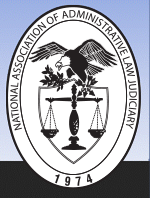First Page
1
Last Page
23
Abstract
In recognition of the humanitarian purpose of the District of Columbia Workers’ Compensation Act of 1979, D.C. Code as amended, §32-1501 et seq. and the legislative policy favoring awards even in arguable cases, a claimant is entitled to a presumption of compensability (“Presumption”) when applying for workers’ compensation benefits. By establishing a causal connection between the injured worker’s disability and a work-related event, the Presumption enables a claimant to establish entitlement to benefits more easily; however, an analysis of decisions issued by the Compensation Review Board from 2005 – 2019 reveals the Presumption frequently is misapplied. Moreover, contrary to Marc Galanter’s position in Why the “Haves” Come Out Ahead: Speculations on the Limits of Legal Change, in District of Columbia private sector workers’ compensation cases, One-Shotter-Claimants (Have-Nots) have distinct advantages built into the architecture of the system, not the least of which is the Presumption, yet despite the advantages, because misapplication of the Presumption has little effect on the outcome of remanded cases, the Repeat-Player-Employers (the Haves) continue to come out ahead.
Recommended Citation
Melissa Lin Jones,
One-Shotters or Have-Nots Should Come Out Ahead In the District of Columbia’s Private Sector Workers’ Compensation System, But Do They?,
41 J. Nat’l Ass’n Admin. L. Judiciary
1
(2021)
Available at:
https://digitalcommons.pepperdine.edu/naalj/vol41/iss1/1

